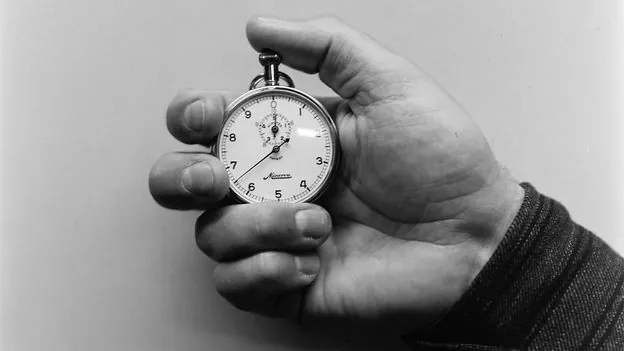
Unlocking Your Inner Speed: Simple Home Tests to Check Your Reaction Time!
2025-04-15
Author: Ling
Why Reaction Times Matter More Than You Think!
Did you know that your reaction times can hold critical clues about your health? From assessing brain functionality to predicting your risk of premature death, these quick responses are key indicators of what's happening inside your body as you age.
The Aging Process and Its Effects on Reaction Times
As we age, our reaction times don't age gracefully. Researchers note that maintaining a quick response rate could be a sign that your brain is still sharp well into your later years. Simon Cox, a cognitive aging expert from the University of Edinburgh, emphasizes that while some individuals naturally have faster reactions, a decline often signals the accumulation of age-related issues. This decline can connect to everything from heart health to overall mortality.
Test Your Reaction Time at Home!
Want to check how fast you really are? The "ruler drop test" is a simple and fun way to find out!
Here's how to do it: 1. Sit comfortably with your arm resting on a table, wrist hanging off the edge and fingers pointing upwards. 2. Have a friend hold a ruler vertically above your hand, aligning the zero with your thumb. 3. Without warning, they will drop the ruler—your task is to catch it as quickly as possible. 4. Measure the distance it fell before you caught it. Less than 7.5cm is excellent; 7.5-15.9cm is above average; 15.9-20.4cm is average; over 20.4cm is below average; and anything over 28cm is poor.
Reaction Times and Long-Term Health Risks
Studies reveal a startling link between slower reaction times and various age-related health risks, including heart disease, stroke, and respiratory problems. Notably, reaction times also correlate with the likelihood of falls and even dementia. But don’t panic yet! A single measurement isn’t the full story—what matters more is tracking changes over time.
How Reaction Times Work
Cox explains that our reflexes rely on different interconnected sensory systems. The brain processes signals from our senses, and our muscles need to act quickly on this information. Age can disrupt this network—our brains may notice an external stimulus almost instantly, but our body might take longer to respond.
Strengthening Your Reaction Time!
Keep your reaction times sharp with engaging dual-task training! Activities like walking while turning your head or balancing on one leg while spelling can help enhance your motor responses. Biomedical experts are highlighting that as we age, bodily health may play a more significant role than mental acuity in our reaction speeds.
Additional Ways to Boost Your Reflexes
How about some digital fun? Simple computer games like the Human Benchmark Reaction Time Test can also measure your speed, revealing potential declines before any serious symptoms emerge. Participating in wellness classes or staying intellectually engaged through games or sports can also enhance your brain and body performance.
Conclusion: Keep Awakening Your Potential!
From exercises to daily brain challenges, there are numerous ways to keep your reaction times sharp. So why wait? Dive into these activities today, and unlock not just faster reflexes, but a healthier, more vibrant life!




 Brasil (PT)
Brasil (PT)
 Canada (EN)
Canada (EN)
 Chile (ES)
Chile (ES)
 Česko (CS)
Česko (CS)
 대한민국 (KO)
대한민국 (KO)
 España (ES)
España (ES)
 France (FR)
France (FR)
 Hong Kong (EN)
Hong Kong (EN)
 Italia (IT)
Italia (IT)
 日本 (JA)
日本 (JA)
 Magyarország (HU)
Magyarország (HU)
 Norge (NO)
Norge (NO)
 Polska (PL)
Polska (PL)
 Schweiz (DE)
Schweiz (DE)
 Singapore (EN)
Singapore (EN)
 Sverige (SV)
Sverige (SV)
 Suomi (FI)
Suomi (FI)
 Türkiye (TR)
Türkiye (TR)
 الإمارات العربية المتحدة (AR)
الإمارات العربية المتحدة (AR)